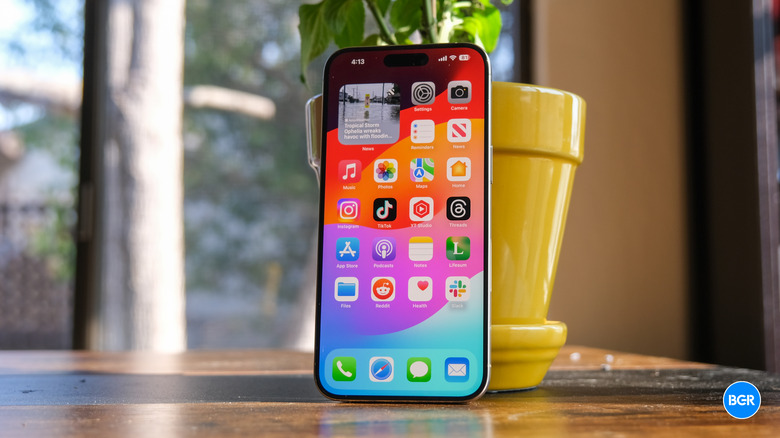Apple's iPhone 17 Air Might Get Ultra-Thin Competition From Samsung
Apple is widely expected to replace the iPhone Plus variant next year with an ultra-thin iPhone 17. In the past few months, we've been calling it iPhone 17 Slim, iPhone 17 Ultra, and iPhone 17 Air as we adapted to what leakers said about it.
Considering the most recent iPhone 17 leaks, "iPhone 17 Air" might be the best designator for the handset. The ultra-thin iPhone will be a flagship device, but not the best iPhone 17 model Apple can offer in terms of power and performance. Reducing the thickness of the handset will force Apple to make some compromises.
We'll have to wait a few more months before the first renders and dummy units show the iPhone 17 Air design. Apple will not confirm anything until September 2025, when the phone is expected to launch.
But the iPhone 17 Air will not be the only ultra-thin, high-end handset that comes out next year. Reports say that Samsung's redesigned Galaxy S25 Ultra will be thinner than its rivals.
Samsung should launch the Galaxy S25 series in early 2025, which explains why we're already getting leaks about these flagships. The purported Galaxy S25 Ultra design appeared in renders recently, telling us that Samsung is fixing one of the design issues of the Galaxy S24 Ultra.
The Galaxy S25 Ultra will reportedly feature rounded corners rather than the rectangular ones of the current model. That could be a big upgrade for usability if you ask me. I don't like how the Galaxy S24 Ultra's corner feels in the hand, and I can't imagine using it for too long.
The leak also claimed the Galaxy S25 Ultra will feature a narrower body and thinner bezels, making it slightly more compact and easy to handle. However, that design leak did not detail the phone's thickness.
The S25 Ultra will be the thinnest and lightest of all Ultra flagship phones to be released soon, including iPhone 16 Pro Max and Pixel 9 Pro XL.
— Ice Universe (@UniverseIce) August 28, 2024
Well-known Samsung insider Ice Universe is back with new claims about the Galaxy S25 Ultra after leaking its design a few days ago. He said on X the Galaxy S25 Ultra will be the thinnest and lightest phone of all "Ultra" flagships. He mentioned the iPhone 16 Pro Max and the Pixel 9 Pro XL by name.
The two devices are the direct competitors of the Galaxy S25 Ultra. The Pixel 9 Pro XL is already available in stores. Google's largest non-foldable Pro phone is 8.5mm thick. The iPhone 16 Pro Max isn't out, so we don't have the official size, but it should be about as thin as the iPhone 15 Pro Max (8.25mm).
It could actually be slightly thicker than the current Pro Max. Apple has been increasing the thickness of its phones in recent years. The iPhone 13 Pro Max had a 7.65mm profile, which went to 7.85mm for the 14 Pro Max. The 15 Pro Max also got thicker.
With that in mind, anything under 8.25 mm could help Samsung claim its Galaxy S25 Ultra is the thinnest premium phone in stores. Let's keep in mind that Samsung also has to pack a stylus inside the Ultra.
I'd expect the iPhone 17 Air to be even thinner than that, though it's unclear how low Apple can go. The iPhone 6 had a 6.9mm profile in 2014. A decade later, the M4 iPad Pro is 5.1mm thick. Meanwhile, the 2020 iPhone 12 Pro Max was just 7.4mm thick. The iPhone 16 design is a refinement of the iPhone 12.
Before the iPhone 17 Air comes out, Samsung will have at least half a year to turn the Ultra's thickness into a selling point. That's assuming the leaks are accurate and these phones are getting thinner.
Separately, according to rumors, Samsung has been shaving off every millimeter it can from the Galaxy Z Fold 6 Slim, which suggests that Samsung is pursuing thinner phones. The new Fold 6 variant should come out next month, around the time the iPhone 16 series hits stores.
